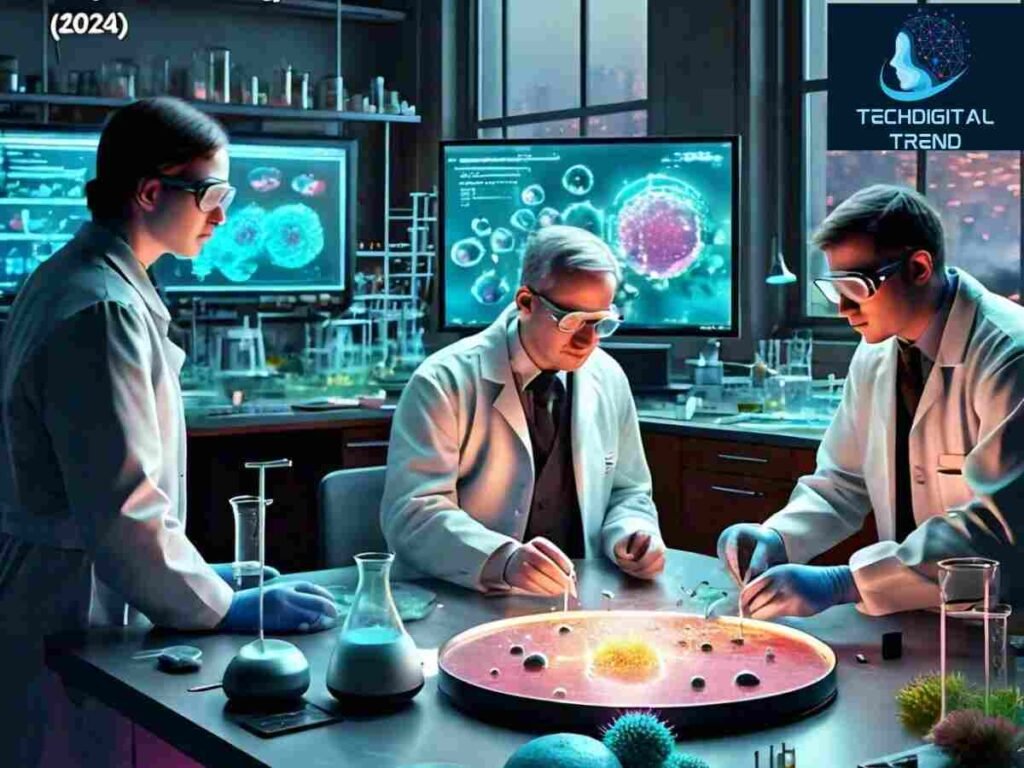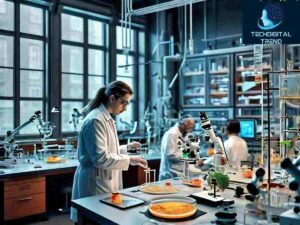Table of Contents
ToggleRevolutionary
Synthetic biology is a revolutionary field that involves designing and constructing new biological systems, such as microorganisms, to address global challenges and create innovative solutions. In this article, we will explore the potential of synthetic biology, its applications, and the latest innovations in this field.
Few areas of scientific inquiry have the potential and fascination that synthetic biology has. Synthetic biology holds the potential to transform several industries such as health, agriculture, energy production, and more by virtue of its capacity to create biological systems from scratch. The possibility that synthetic biology could completely change our planet is more real than ever as we approach 2024.
Through the intersection of biology, engineering, and computer science, synthetic biology enables researchers to repurpose live organisms to generate useful substances or carry out novel activities. Synthetic biology is fundamentally about using DNA as code, which allows researchers to rewrite the genetic code of life with previously unheard-of accuracy and efficiency.
What is Synthetic Biology?
Synthetic biology is a field of science that combines biology, engineering, and computer science to design and construct new biological systems. These systems can be used to produce biofuels, clean up environmental pollutants, and develop new drugs.
Applications of Synthetic Biology
Synthetic biology has the potential to transform various industries and aspects of our lives, including:
- Healthcare: Synthetic biology can be used to develop new drugs, vaccines, and diagnostic tools.
- Energy: Synthetic biology can be used to produce biofuels, such as ethanol and butanol.
- Environment: Pollutants like hazardous chemicals and oil spills can be cleaned up using synthetic biology.
- Agriculture: Synthetic biology can be used to develop new crops that are more resilient and sustainable.
Latest Innovations in Synthetic Biology
The field of synthetic biology is rapidly evolving, with new innovations and breakthroughs emerging regularly. Some of the latest developments include:
- Genome Editing: Scientists have developed new genome editing tools, such as CRISPR/Cas9, that enable precise editing of genes.
- Synthetic Genomes: Scientists have developed new synthetic genomes that can be used to create new biological systems.
- Biofuels: Scientists have developed new biofuels that are more efficient and sustainable.
Benefits of Synthetic Biology
Synthetic biology offers numerous benefits, including:
- Improved Healthcare: Synthetic biology can be used to develop new drugs and vaccines that can improve healthcare outcomes.
- Sustainable Energy: Synthetic biology can be used to produce biofuels that are more sustainable and efficient.
- Environmental Protection: Synthetic biology can be used to clean up environmental pollutants and protect the environment.
Challenges and Limitations
While synthetic biology offers numerous benefits, it also faces several challenges and limitations, including:
- Ethical Concerns: Synthetic biology raises ethical concerns, such as the potential for bioterrorism and the risks of unintended consequences.
- Technical Challenges: Developing new biological systems is a complex and challenging task that requires significant technical expertise.
- Regulatory Frameworks: There is a need for regulatory frameworks to ensure that synthetic biology is developed and used responsibly.
Synthetic Biology in Revolutionary Medicine
Synthetic biology has the potential to revolutionary medicine by enabling the production of novel therapeutics, vaccines, and diagnostics. Some examples include:
- Gene therapy: Synthetic biology can be used to develop gene therapies that can treat genetic diseases.
- Vaccine development: Synthetic biology can be used to develop novel vaccines that can protect against infectious diseases.
- Cancer treatment: Synthetic biology can be used to develop targeted cancer therapies that can reduce side effects and improve efficacy.
Synthetic Biology in Energy
Synthetic biology has the potential to Revolutionary energy production by enabling the production of novel biofuels and bioproducts. Some examples include:
- Biofuels: Synthetic biology can be used to develop novel biofuels that can replace fossil fuels.
- Bioproducts: Synthetic biology can be used to develop novel bioproducts that can replace petroleum-based products.
- Algae-based biofuels: Synthetic biology can be used to develop algae-based biofuels that can provide a sustainable alternative to fossil fuels.
Synthetic Biology in Agriculture
Synthetic biology has the potential to revolutionary agriculture by enabling the production of novel crops that are more resilient and sustainable. Some examples include:
- Drought-tolerant crops: Synthetic biology can be used to develop crops that are more resistant to drought.
- Pest-resistant crops: Synthetic biology can be used to develop crops that are more resistant to pests.
- Nutritionally enhanced crops: Synthetic biology can be used to develop crops that are more nutritious and healthier.
Synthetic Biology in Manufacturing
Synthetic biology has the potential to revolutionary manufacturing by enabling the production of novel biomaterials and bioproducts. Some examples include:
- Bioplastics: Synthetic biology can be used to develop bioplastics that are more sustainable and environmentally friendly.
- Biomaterials: Synthetic biology can be used to develop novel biomaterials that can replace traditional materials.
- Biofabrication: Synthetic biology can be used to develop novel biofabrication techniques that can enable the production of complex biomaterials.
In conclusion
Synthetic biology is a revolutionary field that has the potential to transform various industries and aspects of our lives. From medicine to energy, agriculture to manufacturing, synthetic biology offers numerous benefits and opportunities for innovation and growth. However, it also raises ethical and regulatory challenges that need to be addressed to ensure that this technology is developed and used responsibly.
It is imperative that we keep investigating and improving synthetic biology as we advance, while also tackling the obstacles and constraints that come with it. By doing this, we can realize synthetic biology’s full promise and build a more promising and sustainable future for everybody.
Synthetic biology is a revolutionary rapidly developing branch of science that has the potential to drastically alter our reality. We must approach the challenge of engineering and creating life through synthetic biology with humility, thoughtfulness, and a commitment to use this revolutionary technology for the good of society at large. By embracing collaboration, responsible stewardship, and an uncompromising pursuit of knowledge, we can fully harness synthetic biology to create a more promising and sustainable future for ourselves and our children. A more sustainable future for upcoming generations.
Open this link: Tap to here















